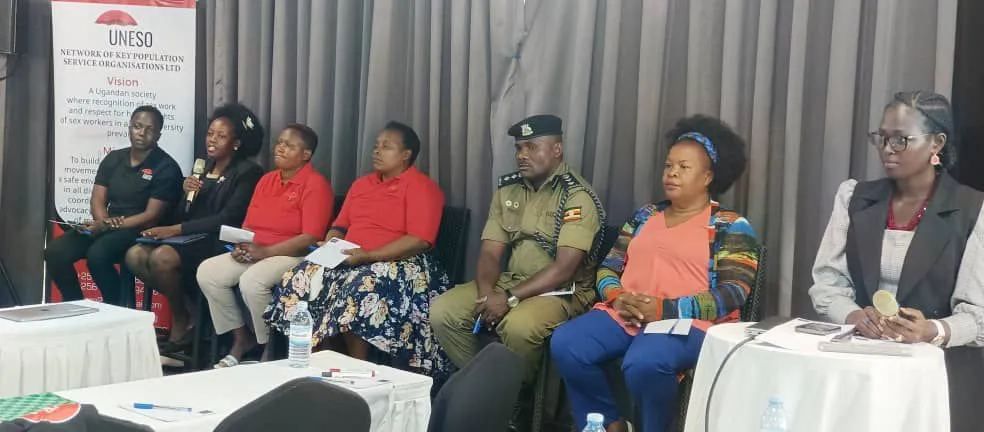Afande Lameck Kigozi, a senior police official, has urged for the consideration of legalizing or establishing a legal framework for sex work to mitigate the persistent confrontations and rights violations faced by sex workers in Uganda. His remarks came during the commemoration of the International Day to End Violence Against Sex Workers, organized by the Network of Key Population Service Organisations (UNESO).
The event, held under the theme “End Violence Against Sex Workers,” brought together advocates, law enforcement officials, and sex worker representatives to address the growing violence, discrimination, and exploitation affecting sex workers.
Afande Kigozi emphasized the necessity of a legislative framework to regulate the sector, noting that the criminalization of sex work has fostered conflict between sex workers and law enforcement.
“We need legislation to legalize this kind of business in our country. Without doing things legally, confrontations will persist. Regulations should have been passed yesterday rather than today,” Kigozi said. He added that police would strive to minimize confrontations but stressed that decriminalization is key to resolving the issue holistically.
Kigozi also encouraged sex workers to report rights violations to Community Liaison Officers (CLOs) or other relevant authorities without fear of reprisal, reaffirming the police’s commitment to addressing their grievances.

Currently, prostitution is illegal though in reality it is happening and several people at the event, including Stella Nassuuna, Advocacy Officer at UNESO, highlighted the urgent need to repeal laws that criminalize sex work. Nassuuna called for policy reviews to ensure marginalized groups, including sex workers, are not left behind.
“It’s time for policymakers to review existing laws critically to ensure they protect every Ugandan, not just a select few,”Nassuuna said, citing problematic clauses in the Sexual Offenses Bill that disproportionately target sex workers. She urged collaboration between civil society organizations (CSOs) and sex worker advocacy groups to drive evidence-based policy reforms.
According to UNESO’s 2023–2024 Human Rights Situation Report, sex workers in Uganda continue to face systemic abuses, including torture, discrimination, and violations of property and life rights. The report verified 214 human rights violations out of 237 reported cases, underscoring the precarious environment sex workers operate in.
Lindah Alice Nambalirwa, a human rights defender from the Human Rights Awareness and Promotion Forum (HRAPF), emphasized the need for law enforcement training on the rights of sex workers. “Many officers are unaware that sex workers have rights. Education within the police force is critical to reducing these violations,” she said.
The commemoration served as a platform for sex workers to voice their struggles. They condemned mistreatment by junior officers, local council defense units, and army personnel who often stigmatize them as immoral. Representatives reiterated that decriminalization would reduce stigma, enhance access to legal protections, and create safer working conditions.
“Sex workers deserve to live free from violence and discrimination,” a representative from the movement said. “Criminalization fuels stigma and abuse while denying us justice.”
As Uganda grapples with the complex issue of sex work, stakeholders agree that a rights-based approach is crucial. Advocates and police officials alike have called for immediate reforms to create a legal environment that prioritizes the safety, dignity, and rights of sex workers while addressing societal concerns.

